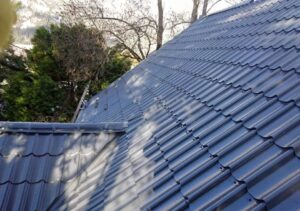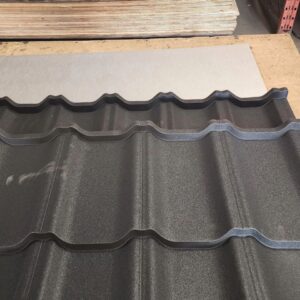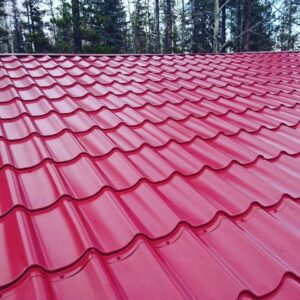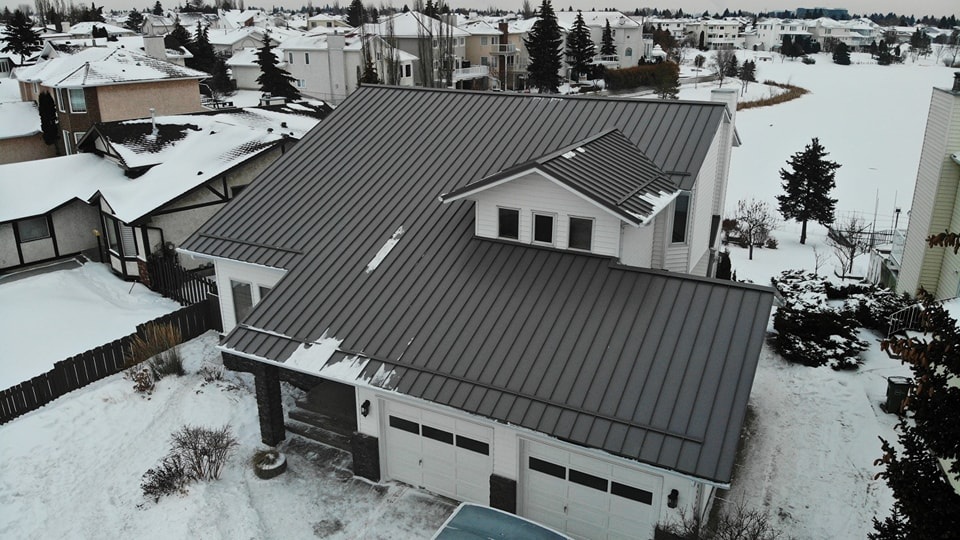Metal roofing has become a popular choice for homeowners, but many still wonder about its potential noise levels. Common myths suggest that this type of roofing is loud and disruptive, especially during storms. However, these perceptions often stem from misunderstandings and outdated information. Let’s explore the truth behind these claims and uncover what you can really expect from a metal roof system.
For Starters, Make Your Move Simpler!
Suppose you are moving to Alberta from other cities, like Ontario. In that case, you may find the transition to a new home somewhat challenging, especially as you adapt to a different climate and lifestyle. The logistics of relocating can be overwhelming, from sorting through belongings to navigating the housing market. Engaging Professional Movers Canada can simplify the process, offering assistance with packing, transportation, and even unpacking. These services can help ease the burden of relocating, allowing you to focus on settling into your new home.
Understanding Metal Roofing
Metal roofing consists of panels or tiles made from various metals, including aluminum, steel, and copper. This type of roofing is renowned for its durability and resistance to harsh weather, making it an excellent choice for homes in diverse climates. Many homeowners opt for metal roofs due to their impressive longevity; they can last anywhere from 40 to 70 years with proper maintenance. Beyond durability, metal roofing offers a range of aesthetic options, available in different styles and colors to complement various architectural designs, from traditional to modern. Advancements in manufacturing have also led to coatings that enhance energy efficiency, reflecting solar heat and reducing cooling costs.
The Noise Myth: Where Does It Come From?
Concerns about noise levels often stem from misconceptions about metal roofing. Many people associate metal roofs with the sound of raindrops or hail striking a metal surface, leading to the belief that they are excessively loud. This myth is further fueled by cultural references and anecdotes that exaggerate the noise factor. In reality, the sound produced by rain or hail is influenced by various factors, such as insulation and the roof’s underlying structure. Traditional roofing materials like asphalt shingles can also produce noise, but they don’t receive the same level of scrutiny. By understanding where these myths originate, you can approach the topic with a clearer perspective and make more informed choices regarding your roofing options.

Real Sound Levels: What to Expect
When considering metal roofing, it’s essential to understand what sound levels you can realistically expect. Research indicates that metal roofs, when properly installed, do not produce significant noise during rain or storms. In fact, studies show that the sound insulation provided by quality underlayment and insulation can effectively minimize noise levels. Many homeowners report that their metal roofs are quieter than anticipated, especially compared to traditional materials like asphalt shingles. The thickness and type of metal used also play a role in sound levels. Thicker panels tend to absorb sound better, reducing the overall noise impact. Additionally, the structure of your home, including attic space and insulation, contributes significantly to how sound travels.
Factors Affecting Noise Levels
Several factors influence the noise levels associated with metal roofing. First, the quality and type of insulation play a crucial role. High-quality insulation can significantly dampen sound, preventing it from traveling into your home. Additionally, the installation process matters; a well-installed roof will minimize gaps, allowing sound to seep through. The type of metal used is also important; thicker panels generally provide better sound insulation than thinner options. Another consideration is the structure of your home, particularly the attic space. Homes with spacious attics often experience less noise because the sound has more room to dissipate. Weather conditions can also impact noise levels; heavy rain or hail might create more noticeable sounds, but proper insulation will still help mitigate this effect.
Benefits of Metal Roofing
Choosing metal roofing comes with a range of benefits that extend beyond noise levels. One significant advantage is its remarkable durability; metal roofs can withstand extreme weather conditions, including heavy rain, snow, and high winds, making them reliable for various climates. As mentioned above, many can last 40 to 70 years, far outpacing traditional materials.
Energy efficiency is another key benefit, as metal roofing reflects solar heat, helping to keep your home cooler in the summer and potentially lowering energy bills over time. The roofs can be made from recycled materials and, therefore, can be recycled. Aesthetic appeal is also important; metal roofing comes in various styles, colors, and finishes, allowing you to customize your home’s appearance.

Mitigating Noise: Tips for Homeowners
If you’re concerned about noise from metal roofing, there are several strategies to reduce sound levels. Start by selecting high-quality insulation, which effectively dampens sound. Consider using materials specifically designed for soundproofing to lower noise during rain or hail. Proper installation is crucial, so ensure your roofing contractor minimizes gaps that can let sound in. Adding an underlayment beneath the metal panels can further absorb vibrations and reduce noise. Exploring sound-dampening products in your attic or ceilings can also create a quieter environment. Finally, consulting with roofing professionals can provide tailored recommendations to help you enjoy the benefits of metal roofing without the noise concerns.
Common Misconceptions: Quick Facts
- Myth: Metal roofs are extremely noisy.
Reality: Proper insulation makes metal roofs quieter than traditional materials.
- Myth: Metal roofing attracts lightning.
Reality: Metal roofs do not increase the risk of lightning strikes; they are safe and can even help disperse electrical charges.
- Myth: Metal roofs rust easily.
Reality: Modern metal roofing materials are coated to resist rust and corrosion.
- Myth: Metal roofs are too expensive.
Reality: While the initial cost may be higher, metal roofs save money over time due to their durability and energy efficiency.
- Myth: Metal roofs are heavy.
Reality: Metal roofs are lightweight compared to other materials, making installation easier and reducing structural load.
- Myth: All metal roofs look the same.
Reality: Metal roofing offers a wide range of styles, colors, and finishes to enhance your home’s appearance.

The Truth About Metal Roofing
Understanding the realities of metal roofing can help you make informed decisions about your home. While common myths suggest that metal roofs are noisy and unattractive, the truth is quite different. With proper insulation and installation, these roofs can be surprisingly quiet and offer numerous benefits, including durability, energy efficiency, and aesthetic appeal. By debunking misconceptions and considering the advantages, you can feel confident in choosing a metal roofing system that suits your needs. Embracing this option enhances your home’s value and provides long-lasting protection and style.
